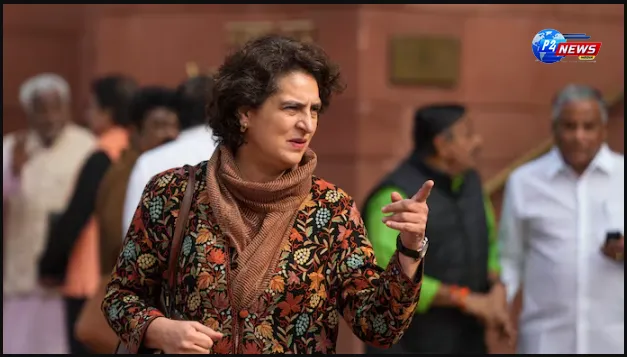The Joint Parliamentary Committee (JPC) on 'one nation, one poll' consists of 21 Members of Parliament (MPs) from the Lok Sabha and 10 MPs from the Rajya Sabha, tasked with evaluating the feasibility of simultaneous elections across India.
The Joint Parliamentary Committee (JPC) on 'one nation, one poll' consists of 21 Members of Parliament (MPs) from the Lok Sabha and 10 MPs from the Rajya Sabha, tasked with evaluating the feasibility of simultaneous elections across India.
In a significant development regarding electoral reforms, the BJP's Anurag Thakur and Anil Baluni, along with Congress's Priyanka Gandhi Vadra, have been appointed to a new Joint Parliamentary Committee (JPC). This committee will focus on the contentious issue of 'One Nation One Poll,' aiming to assess the feasibility and implications of conducting national and state elections concurrently.
The JPC will consist of a total of 31 members, comprising 21 Members of Parliament from the Lok Sabha and 10 from the Rajya Sabha. This diverse representation ensures that different political perspectives are considered as the committee embarks on its crucial task.
The JPC has been tasked with submitting its findings to Parliament by the first day of the last week of the upcoming session. This timeline highlights the urgency with which lawmakers are approaching the matter, reflecting the government's commitment to exploring new electoral strategies that could reshape the political landscape.
Among the prominent names on the committee are Sambit Patra, Supriya Sule, Shrikant Eknath Shinde, Manish Tewari, and Kalyan Banerjee, representing a mix of political ideologies and regional interests. Their collective expertise will be vital in navigating the complex legal and constitutional challenges presented by the proposal.
The central issue before the JPC will be the examination of whether amendments to the Constitution are necessary to facilitate simultaneous elections. This inquiry is crucial, as the concept of 'One Nation One Poll' has garnered both support and criticism across the political spectrum. Proponents argue that it could enhance governance efficiency and reduce the costs associated with frequent elections, while detractors raise concerns about its potential impact on federalism and democratic processes.
The formation of this committee underscores the importance of a comprehensive dialogue surrounding electoral reforms in India. As the nation grapples with numerous political challenges, the outcomes of the JPC's deliberations could set a precedent for how elections are conducted in the future.
As discussions progress, the committee's findings are anticipated to stimulate a broader debate on the structure of democracy in the country, raising questions about the balance of power between the central and state governments. Observers will be keenly watching how these discussions unfold and whether they can lead to a consensus that accommodates the diverse needs of India's multifaceted electorate.
In conclusion, the formation of the JPC on 'One Nation One Poll' marks a critical step in addressing the complexities of electoral logistics in India. With a deadline set for reporting, the committee's work will be pivotal in shaping the future of electoral practices in the country, ensuring that the voices of various stakeholders are heard and considered in this vital national discussion.
Like
Dislike
Love
Angry
Sad
Funny
Pray
'Trump Tracker: Tulsi Gabbard's Surprising Appointment as US Intelligence Chief
November 14, 20249th Ayurveda Day in Melbourne: A Celebration of Ayurvedic Innovations and Global Health Impact
November 10, 2024🍪 We Value Your Privacy and Experience Hi there! We use cookies to enhance your browsing experience, provide personalized content, and analyze site traffic. By continuing to use our site, you consent to our use of cookies.







Comments 0